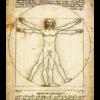Water soluble drugs need to be put in a glass of water so they dissolve, and then you are ready to drink it.
What's the procedure with fat soluble drugs? Do I have to eat food (maybe food high in fat?) and then just take them? Or taking the drug with, let's say, fish oil is an ok method? The reason I am asking is because my diet is based on intermittent fasting, I eat my first meal of the day at 4pm usually, and 2 more every 3 hours, so when I wake up I just can't eat.
Well, water soluble drugs don't need to be dissolved in water to work. What it means is that they don't need to be taken with fatty foods to get the best bioavailability. They may still be taken with foods, but doing so will probably decrease the peak plasma concentration (i.e. will produce a longer effect that isn't quite as strong). This may be relevant when the desired effect depends strongly on reaching a certain dose, or quick onset is desirable.
As mentioned earlier in this thread, you could take fat solubles with a little olive oil. Again, doesn't have to be dissolved, but someone once mentioned that pre-dissolving can increase absorption efficiency. It's tough to say if fish oil would provide enough fat to get the optimum absorption. It probably depends on how much fish oil you take, and the characteristics of the drugs in question.
And the water vs. fat soluble thing is kind of an oversimplification in the first place. Most drugs will be soluble in lipids to some degree, at various pH/ionization states/etc. It's just a good rule of thumb for some things.
Edited by chrono, 23 November 2011 - 11:24 PM.





















































